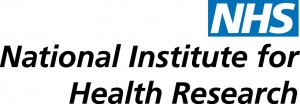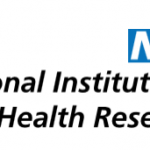 How do I become a NIHR reviewer?
How do I become a NIHR reviewer?
- To comment using your professional experience apply here.
- To comment from your experience as a patient, carer, or member of the public apply here.
Why review for the NIHR?
Professional development. Reviewing research briefs, proposals and final reports can be used as evidence of continuing professional development (CPD). Where appropriate, NIHR provide written confirmation of reviewing tasks that have been completed for inclusion in your CPD portfolio. For consultant grade medical reviewers, there is the additional attraction that peer review for NIHR is recognised in Clinical Excellence Award submissions.
Insight into the research funding process. By becoming an NIHR reviewer, you can develop a valuable insight into health research need in the NHS and the standards of successful applications for funding. NIHR only fund research of the highest scientific standard, so you can increase your insight into best practice in health research.
Make a difference. As a reviewer you can make a significant contribution to the NHS and public health by shaping research and improving practice. NIHR programmes identify the highest impact questions for UK health, so that you know the research you’re reviewing will make a real difference.
What do reviewers do?
Reviewers help the NIHR at every stage of the research process.
By identifying research topics, ensuring NIHR fund the best applications and helping to shape their open access reports published by the NIHR Journals Library, reviewers play a vital part in maintaining and improving the quality of our research.
NIHR need a wide range of expertise:
- Academics
- Clinicians
- Health service managers and clinicians
- Practitioners
- Public health and related professionals
- Social care sector workers
- Patients and the Public
- Anyone whose work has a potential impact on health.
You could play a vital part in maintaining and improving the quality of the research NIHR fund and publish.
 NIHR seeks peer reviewers
NIHR seeks peer reviewers










 SPROUT: From Sustainable Research to Sustainable Research Lives
SPROUT: From Sustainable Research to Sustainable Research Lives BRIAN upgrade and new look
BRIAN upgrade and new look Seeing the fruits of your labour in Bangladesh
Seeing the fruits of your labour in Bangladesh Exploring Embodied Research: Body Map Storytelling Workshop & Research Seminar
Exploring Embodied Research: Body Map Storytelling Workshop & Research Seminar Marking a Milestone: The Swash Channel Wreck Book Launch
Marking a Milestone: The Swash Channel Wreck Book Launch ECR Funding Open Call: Research Culture & Community Grant – Application Deadline Friday 12 December
ECR Funding Open Call: Research Culture & Community Grant – Application Deadline Friday 12 December MSCA Postdoctoral Fellowships 2025 Call
MSCA Postdoctoral Fellowships 2025 Call ERC Advanced Grant 2025 Webinar
ERC Advanced Grant 2025 Webinar Update on UKRO services
Update on UKRO services European research project exploring use of ‘virtual twins’ to better manage metabolic associated fatty liver disease
European research project exploring use of ‘virtual twins’ to better manage metabolic associated fatty liver disease